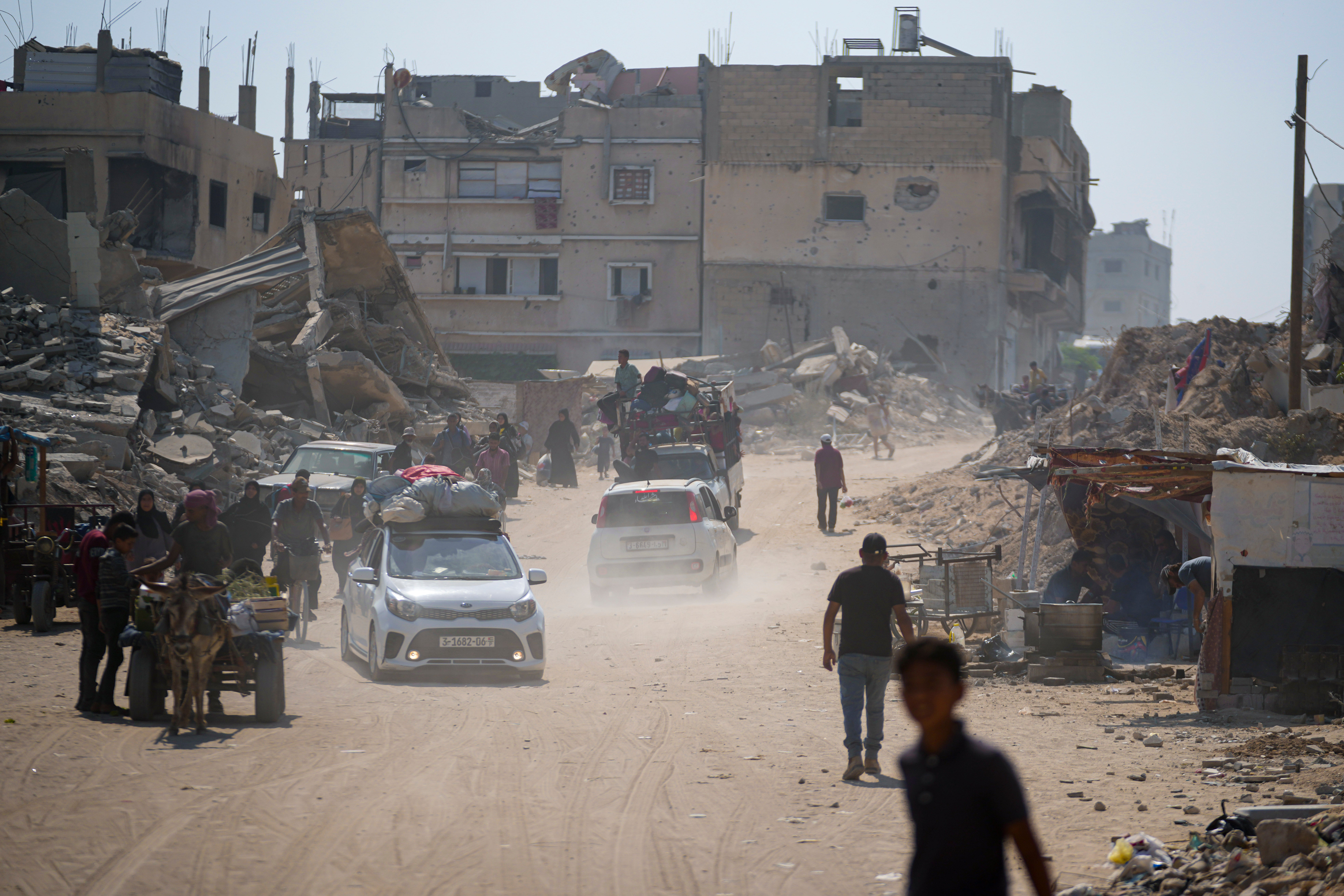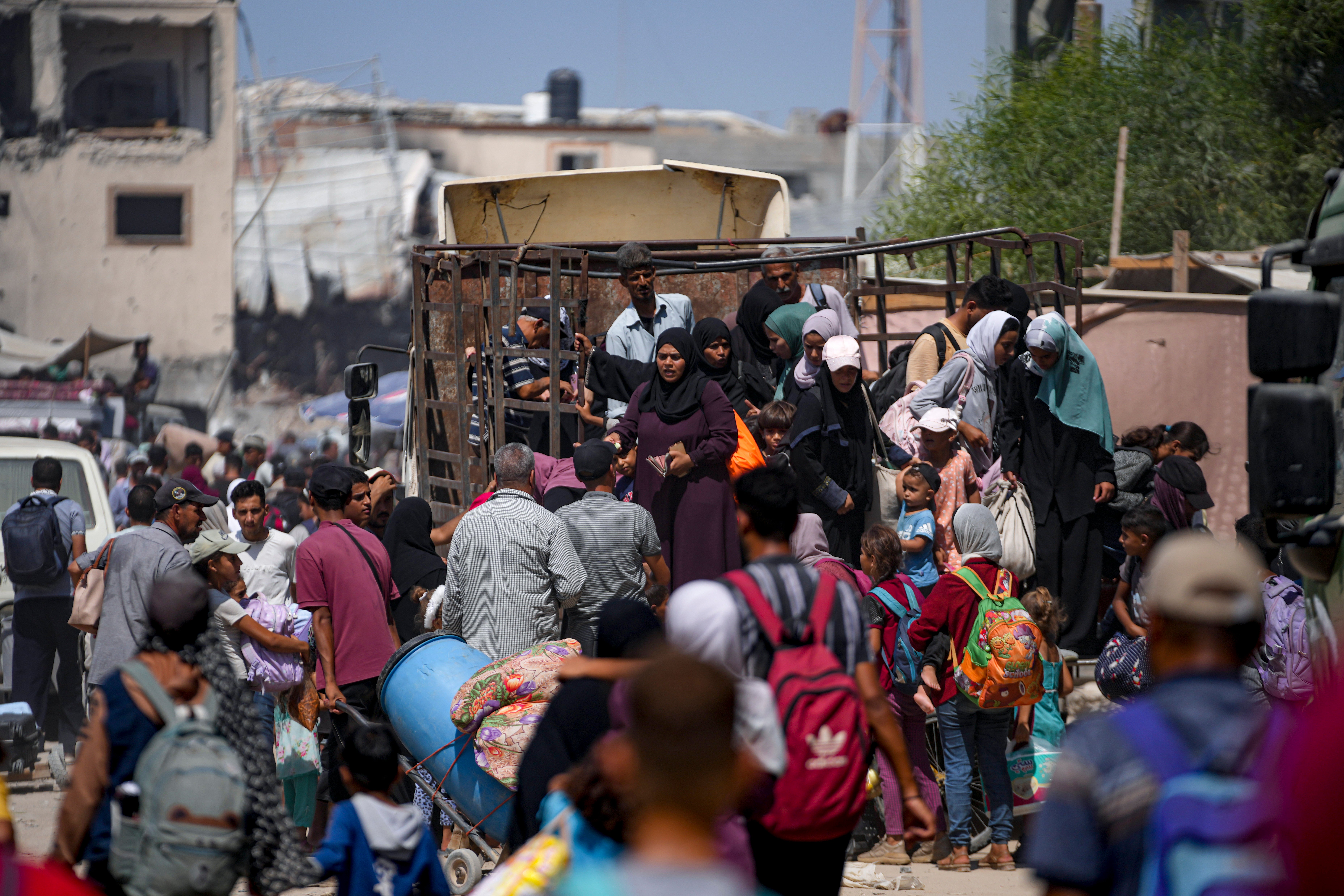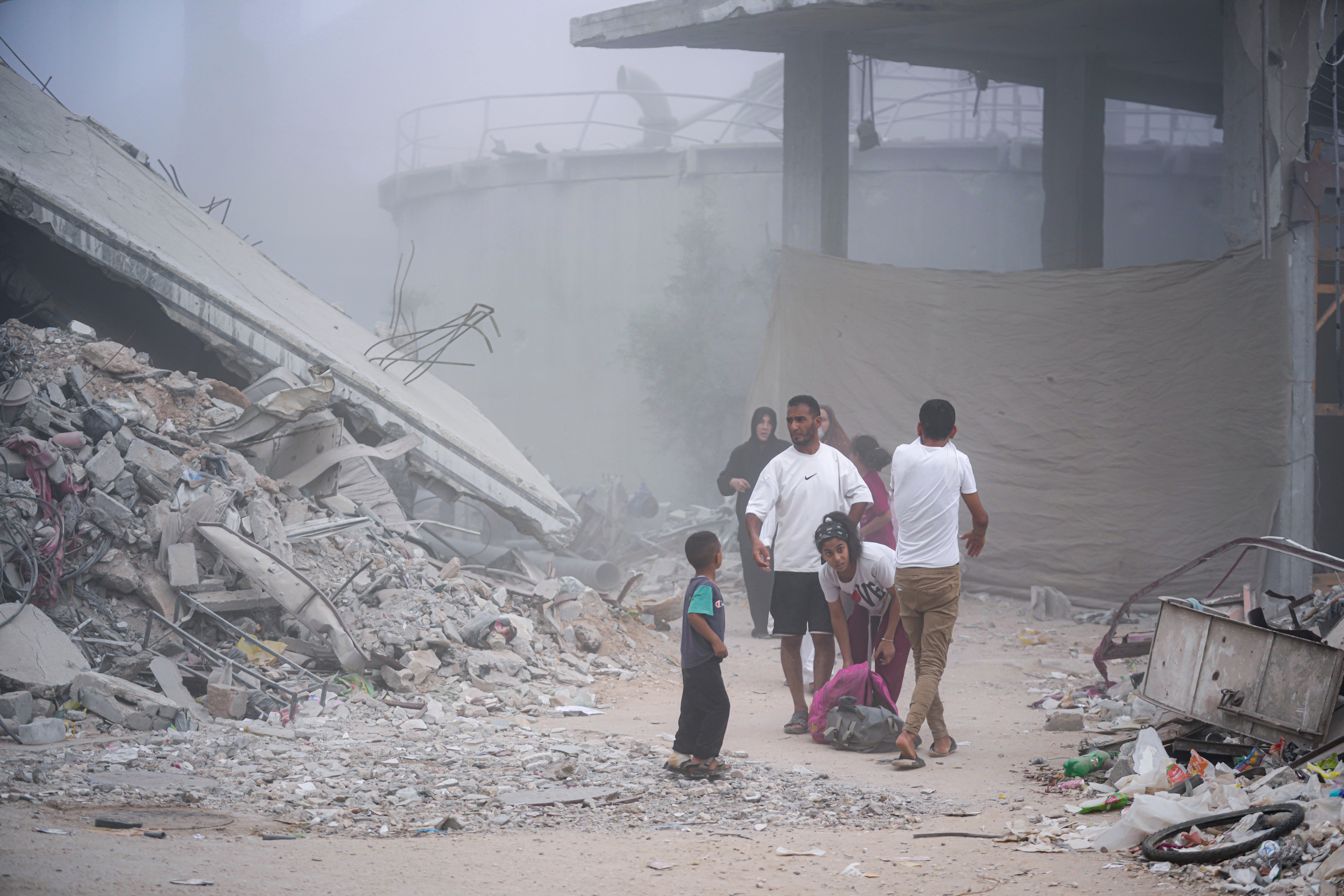Israel military orders evacuation from part of Gaza humanitarian zone
Around 400,000 people are living in area, Palestinian officials say

Your support helps us to tell the story
From reproductive rights to climate change to Big Tech, The Independent is on the ground when the story is developing. Whether it's investigating the financials of Elon Musk's pro-Trump PAC or producing our latest documentary, 'The A Word', which shines a light on the American women fighting for reproductive rights, we know how important it is to parse out the facts from the messaging.
At such a critical moment in US history, we need reporters on the ground. Your donation allows us to keep sending journalists to speak to both sides of the story.
The Independent is trusted by Americans across the entire political spectrum. And unlike many other quality news outlets, we choose not to lock Americans out of our reporting and analysis with paywalls. We believe quality journalism should be available to everyone, paid for by those who can afford it.
Your support makes all the difference.The Israeli military has ordered civilians to evacuate from part of what it has designated a “humanitarian zone” in the southern area of the Gaza Strip, as Israel’s prime minister Benjamin Netanyahu prepares for a key meeting with US president Joe Biden.
The Israeli military said it is planning to begin a “forceful” operation against Hamas, who have embedded themselves in the area and used it to launch rockets toward Israel. it had told residents in the “adjusted” al-Mawasi humanitarian area to leave.
Earlier this month, Israel estimated at least 1.8 million Palestinians are now in the area, covering about 14 kilometres (8.6 miles) along the Mediterranean. That’s the bulk of Gaza’s 2.3 million population.
Around 400,000 people are living in the targeted areas and dozens of families have begun to leave their houses, Palestinian officials said, and claimed they were not given time to leave.
Gaza’s second-largest city was subsequently hit by Israeli tank shelling and airstrikes that have killed at least 37 Palestinians, medics in the embattled enclave said.
Gaza’s health ministry said the dead included several women and children and that dozens of other people had been injured by Israeli fire. The Gaza ministry does not distinguish between militants and civilians in its death tallies.
The toll from Israel’s nine-month war against Hamas has surpassed 39,000 Palestinians killed and 89,800 wounded, according to health officials in the strip.
The war was triggered by an attack by Hamas in southern Israel on 7 October that around killed 1,200 people, most of them civilians, with another 250 taken hostage. About 120 people remain held, about a third of them believed to be dead, according to Israeli authorities.

Some families fled on donkey carts, others on foot, carrying mattresses and other belongings. At Nasser Hospital some people stood outside the morgue to bid farewell to dead relatives before burials.
“We are tired, we are tired in Gaza, every day our children are martyred, every day, every moment,” said Ahmed Sammour, who lost several relatives in the bombing of eastern Khan Younis. “No one told us to evacuate.”
The Palestinians, the United Nations and international relief agencies have said there is no safe place left in Gaza.
The area is blanketed by tent camps with a lack of food, sanitation, medical facilities and there is a lack of access to aid, according to the UN and various humanitarian groups.

Families live amid mountains of rubbish in appalling conditions and the streets are contaminated with streams of sewage.
Israel’s latest military incursion comes as prime minister Benjamin Netanyahu left on Monday morning on a much-anticipated trip to the United States to meet with president Joe Biden, who announced Sunday that he will not seek another term, and address Congress.
Mr Netanyahu said that regardless of who becomes the next US president, “our enemies must know that Israel and the United States stand together tomorrow and always.”
He said he will thank Biden for more than 40 years of friendship, while also pushing him for more support on certain issues.
Mr Netanyahu’s office said a negotiating team looking to agree a ceasefire will be sent to continue talks on Thursday.
Egypt, Qatar and the United States are pushing Israel and Hamas toward a phased ceasefire deal that would work to stop the fighting and free the hostages.
Additional reporting by agencies
Join our commenting forum
Join thought-provoking conversations, follow other Independent readers and see their replies
Comments